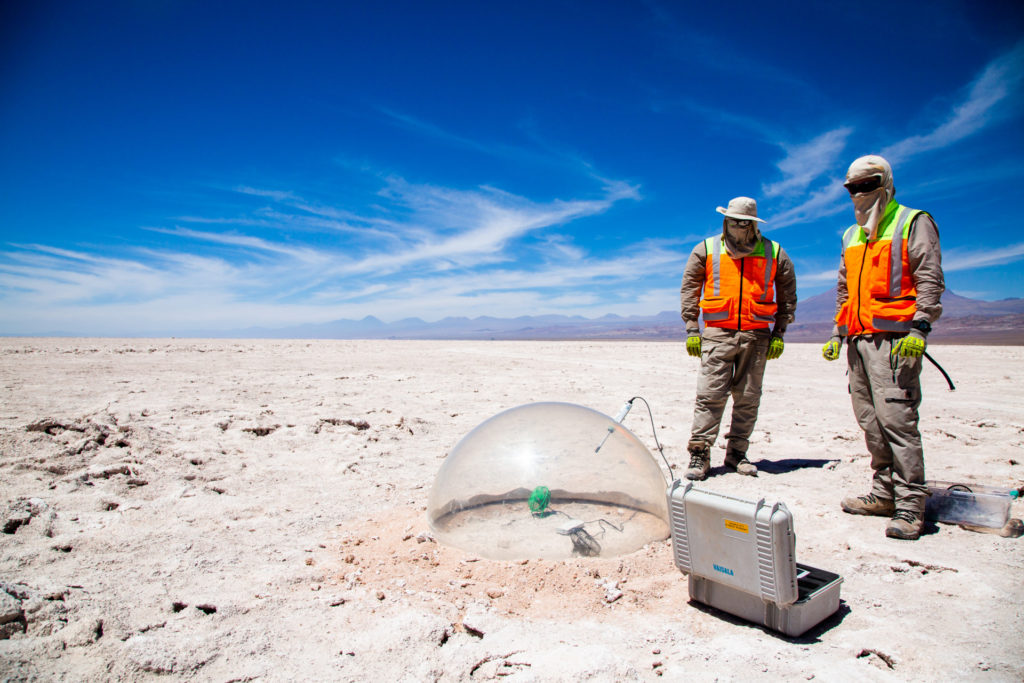Albemarle becomes first lithium firm to complete responsible mining audit


Albemarle (NYSE: ALB), the world’s largest lithium miner, has become the first producer of the battery metal to complete and independent third-party audit under the rigorous standard set by the Initiative for Responsible Mining Assurance (IRMA).
The assessment covered 26 areas, including water management, human rights, greenhouse gas emissions and fair labour among over 400 measures of social and environmental impact.
Albemarle received an IRMA 50 level of performance at its brine operations in northern Chile, which are now the world’s third mine site to complete and publish an IRMA audit.
The score means the independent audit firm ERM-CVS verified that Albemarle’s lithium mine in Chile met all critical requirements of the IRMA Standard, as well as at least 50% to 75% of the criteria in each of four key areas: social responsibility, environmental responsibility, business integrity and planning for positive legacies.
"We are proud to be the first lithium producer to complete an IRMA audit and publish our report,” Ellen Lenny-Pessagno, Global vp of external affairs and sustainability for Albemarle Energy Storage said. "We have made many positive changes in how we operate, engage with the community and transparently share information.”
According to a United Nations Environment Programme (UNEP) report published in 2020, IRMA ‘is the only mine-site focused multi-stakeholder standard for industrial scale mining that offers independent external verification and certification.
It is also the only mine-site standard that requires community engagement in all steps of the process and has the most robust criteria related to "fair labour and terms of work, occupational health and safety, and community health and safety."
Albemarle is collaborating with other miners present in the arid Atacama region of Chile to use desalinated seawater. It is also researching new lithium production technologies, particularly direct lithium extraction (DLE), which it aims to implement as early as 2028.
The company and Chilean peer SQM (NYSE: SQM) currently extract the metal using mass evaporation ponds from brine taken from underground reservoirs. President Gabriel Boric is an open supporter of DLE technology, as indicated during the presentation of Chile’s controversial national lithium strategy in April. The method, yet to be applied commercially, could preserve water tables by allowing brine to be reinjected underground after lithium is extracted.
Global demand for lithium, according to Chile’s projections, will quadruple by 2035, reaching 3.8 million tonnes. Available supply by then is expected to sit at 2.5 million tonnes.
The nation, which is the world’s no.1 copper producer, currently generates about 30% of the world’s supply of lithium.
Chile expects to be able to double production by 2025 to about 250,000 tonnes of lithium carbonate equivalent (LCE).
Albemarle expects global lithium supply to hit 3.2 million tonnes per annum (Mtpa) by 2030, from which 930,000 tonnes in will be produced in Australia, 800,000 tonnes in South America, 650,000 tonnes in China, 300,000 tonnes in Africa and 90,000 tonnes in Europe.
Exports of lithium carbonate last year reached almost $7.8 billion, an increase of 777% over 2021, according to the Chilean Central Bank.
It means that lithium carbonate surpassed salmon and fruit in the Chilean export basket.
THIS ARTICLE ORIGINALLY APPEARED ON MINING.COM
Comments